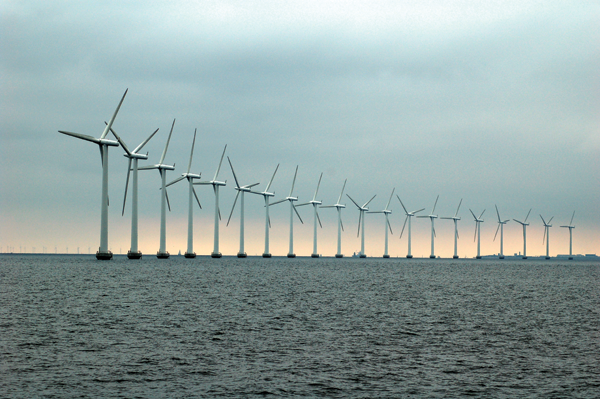Assembly party policy summary
A summary of energy policies advocated by the Assembly parties.
DUP
Enterprise, Trade and Investment Minister: Arlene Foster MLA
Westminster Energy and Climate Change Spokesman: Jeffrey Donaldson MP
Assembly Enterprise, Trade and Investment Spokesman: Robin Newton MLA
The DUP’s 2010 Westminster manifesto supports the 40 per cent target of electricity from renewables, and states that farmers should be assisted in helping government meet this target without increasing the cost of electricity. It commits to expanding incentives for home energy efficiency measures, supporting a substantial increase in the winter fuel payment and establishing Northern Ireland as a global centre for the development of renewables and smart grid technology.
Its 2011 manifesto promises rate relief for businesses investing in energy efficiency, a strategic grid infrastructure development plan and further interconnection with the South and Great Britain. It promises to publish an Offshore Renewable Energy Strategy, a target of 10 per cent of heat consumed coming from renewables by 2020 and a simplified planning process for renewable technology. The DUP supports an extension of the gas network and a province-wide retrofit programme. To combat fuel poverty, it would implement a boiler scrappage scheme, and develop an energy assistance package.
In 2010 Arlene Foster published a Strategic Energy Framework 2010-2020. Her department has also published a draft Offshore Renewable Energy Strategic Action Plan and a Bio-energy Action Plan for 2010-2015. In June the Minister launched a public consultation on extending the natural gas network and her department is also considering a mandatory domestic energy supplier obligation. Common North/South retail market arrangements for gas are expected to be completed by October 2014.
Sinn Féin
Assembly Energy Spokesman: Phil Flanagan MLA
Dáil Communications, Energy and Natural Resources Spokesman: Martin Ferris TD
Seanad Communications, Energy and Natural Resources Spokesman: Trevor Ó Clochartaigh
Sinn Féin’s Westminster manifesto calls for a greater focus on low carbon, energy efficient, affordable housing, with similar high standards applying to all new build and public buildings. The potential of the renewable energy sector needs to be harnessed, and Sinn Féin rejects nuclear energy. Mechanical biological treatment (MBT) of waste and anaerobic digestion combined with combined heat and power (CHP) is the party’s preferred waste-to-energy solution, ruling out incineration. The second North/South interconnector should be built underground and energy infrastructure decentralised through renewables, within the context of an all-Ireland energy strategy.
This year’s Assembly manifesto states the party would establish targets and timetables for the reduction of fuel poverty, develop a long-term renewable energy strategy and provide adequate resources for the Green New Deal.
Commitments in its Dáil manifesto this year include the creation of a green technology firm to manage Ireland’s energy resources. It would provide and fund energy and cost €100 million, with the aim of making Ireland energy independent by 2020.
UUP
Enterprise, Trade and Investment Spokesman: Mike Nesbitt MLA
While the pact between the Ulster Unionist Party and the Conservatives is over, energy commitments in the 2010 joint manifesto remain. It commits to the promotion of low carbon energies such as nuclear, wind, clean coal and biogas. The joint manifesto promises spare capacity in the energy system, an ‘electricity internet’, work to make the Single Electricity Market (SEM) more competitive, the sharing of innovations in smart grid and smart meter technology, and the establishment of an emissions performance standard to limit greenhouse gases from power stations.
A gas storage facility off the coast of Northern Ireland is supported and it is committed to exploring how household energy bills can provide information on moving to the cheapest tariff offered by the supplier and how a customer’s energy usage compares to similar households.
In its Assembly manifesto, the UUP promises incentives to invest in energy saving technologies and says the planning system needed reform to prevent delays with renewable energy projects. It says it would focus on identifying and exploiting sources of renewable energy, including on the public sector estate.
Alliance
Assembly Enterprise, Trade and Investment Spokesman: Trevor Lunn MLA
Alliance’s 2010 Westminster manifesto proposes incentives through the tax and rating system to encourage energy efficiency. The renewable obligation certificates system needs to be reviewed and a feed-in-tariff system considered. The party seeks further development of the single energy market on the island and development of the new North/South interconnector. It would also increase the winter fuel payment.
Alliance wants to increase investment in renewable energy and the grid and promote energy efficiency. Reducing energy could be achieved through the creation of business improvement districts. Fuel poverty is highlighted in its 2011 manifesto as a problem requiring targets in a Green New Deal and a review of the fuel poverty strategy.
The party seeks to cut fossil fuel use by 50 per cent over 1990-2020 and the introduction of a Marine Bill to coordinate marine management.
SDLP
Enterprise, Trade and Investment Spokesman: Alasdair McDonnell MP MLA
The SDLP supports investment in the renewable energy sector and believes it can contribute to the rural economy. Its 2010 manifesto calls for an all-island energy regulator and the introduction of social tariffs on energy provision for older and disabled people.
A new ‘department of energy and sustainability’ should be created, the party believes, and its 2011 Assembly manifesto proposes the insulation of 100,000 homes, retrofitting of more Housing Executive homes, and all-island renewable energy and energy security strategies. It wants to see the scope for price regulation, to incentivise the grid to facilitate wind farm capacity, explored. The party supports a unified gas transmission network and a single gas market by 2015. A green jobs strategy is proposed. The party also wants an action plan to increase renewables in the transport network.






